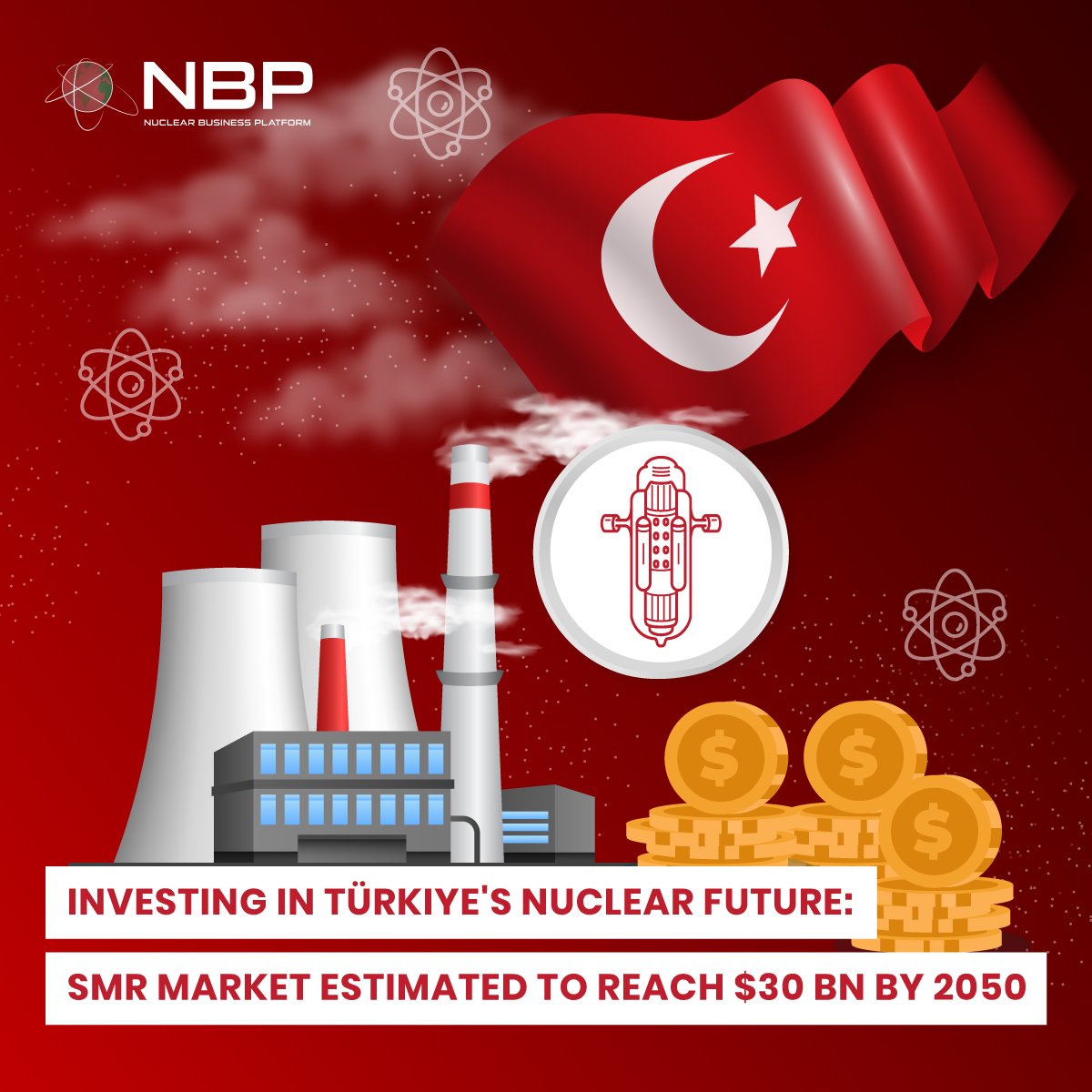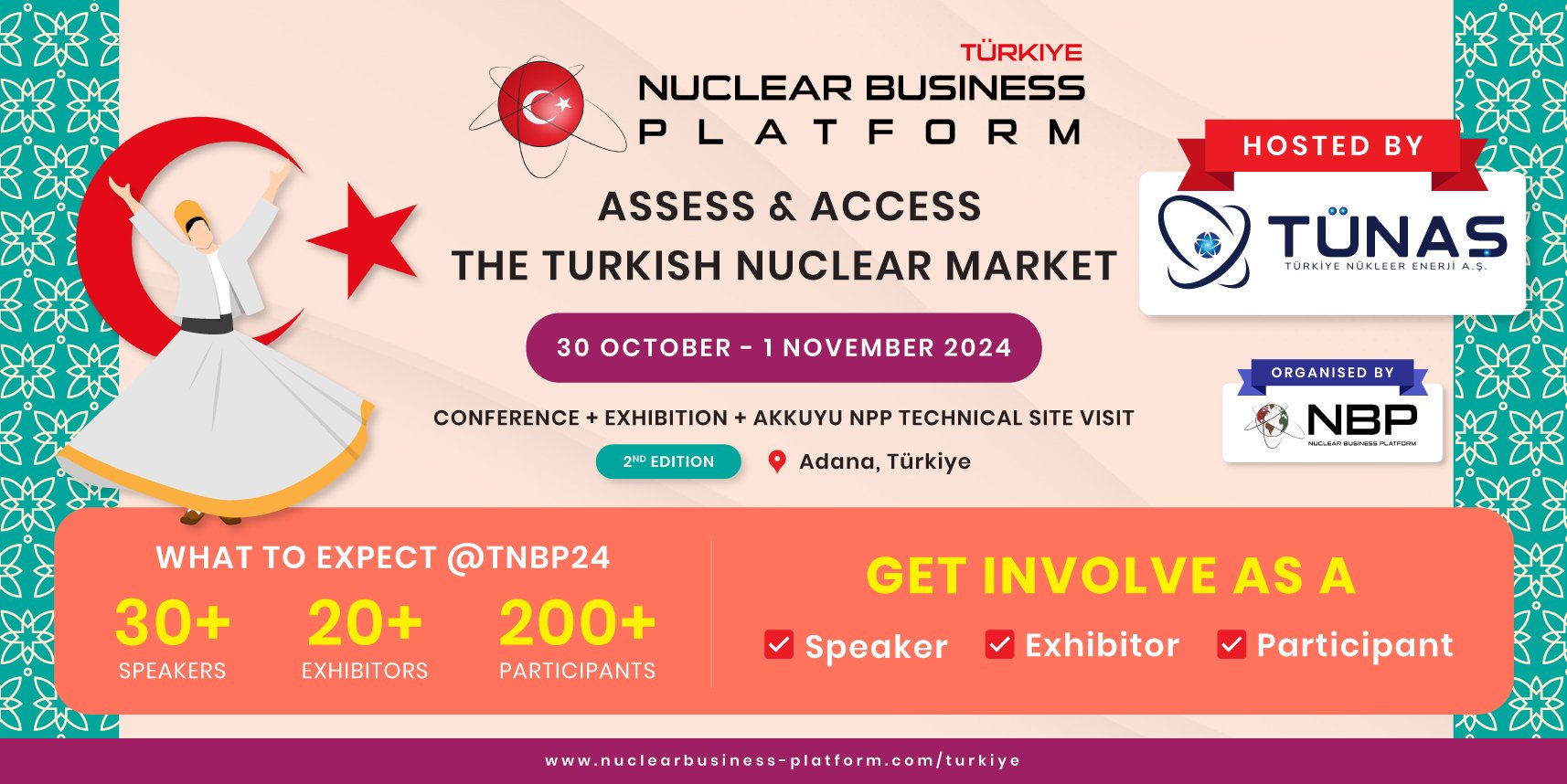US-Türkiye Cooperation: A Strategic Shift in the Global Nuclear Landscape?
Türkiye stands at the cusp of a nuclear revolution, presenting an unprecedented opportunity for international investors and companies. With the Turkish National Energy Plan projecting nuclear power to contribute 20 GW by 2050, and 5 GW expected from Small Modular Reactors (SMRs), Türkiye is poised to become a key player in the global energy market. This article invites global stakeholders to explore the lucrative investment opportunities in Türkiye's SMR sector.
Cost Projections and Benefits of SMRs
SMRs are transforming the nuclear landscape with their innovative design and economic advantages. According to the International Atomic Energy Agency (IAEA), the overnight capital cost of constructing an SMR ranges from $2000 to $6000 per kilowatt (kW). For Türkiye's ambitious goal of adding 5 GW of SMR capacity by 2050, the investment is estimated to be between $10 billion and $30 billion. Despite these costs, the benefits are substantial:
Lower Capital Costs: SMRs require less initial investment compared to traditional nuclear power plants, making them accessible to a broader range of investors.
Economies of Series Production: The cost per unit can be further reduced through mass production.
Simplified Operations: SMRs are designed for simplified operation and maintenance, resulting in cost savings.
Operational Efficiency and Lower Waste Generation: These factors contribute to lower long-term operational costs.
The Market Potential and Projections
The global SMR market is projected to be worth billions of dollars in the coming decades. By 2030, the market could reach $7 billion, with substantial growth anticipated thereafter. Türkiye's strategic location and growing energy needs make it an attractive hub for SMR deployment. Investing in Türkiye's SMR sector not only meets local energy demands but also positions the country as a regional energy leader, opening new avenues for technology export and industrial development.
Despite the clear advantages and strategic benefits, international SMR vendors have been slow to engage with Türkiye. This hesitance may stem from several factors:
Regulatory Uncertainties: Inconsistent regulatory frameworks can deter investment.
Market Perception: Vendors may underestimate Türkiye's commitment to nuclear energy and its market potential.
Competition: Other regions might be perceived as more favorable due to established nuclear industries.
However, Türkiye's proactive steps, such as collaborations with global leaders like Rolls-Royce and strategic initiatives with the United States, indicate a strong and stable commitment to nuclear energy development.
Strategic Initiatives and Collaborations
U.S.-Türkiye Strategic Cooperation: This mechanism emphasizes the importance of civil nuclear energy, including SMRs, fostering public and private sector cooperation. The U.S. Export-Import Bank (EXIM) has unveiled financing options to support SMR development, signaling robust U.S. interest in the Turkish market.
Rolls-Royce Partnership: An MoU with Türkiye to evaluate SMRs' technical and economic applicability underscores Türkiye's strategic alignment with top-tier nuclear technology providers. The UK SMR, developed with Rolls-Royce and its consortium partners, is expected to have a lifespan of 60 years and a power output of 400–450 MWe.
Attracting investments from the U.S. and other countries strengthens Türkiye's strategic alliances and its position in the global energy market. Economically, SMR deployment stimulates growth, creates high-skilled jobs, promotes industrial development, and enhances Türkiye's GDP. Türkiye's strategic location also makes it a potential hub for exporting SMR technology, opening new revenue streams.
The Economic and Geopolitical Benefits
International investments in Türkiye's SMR sector are crucial. These investments bring:
Capital Infusion: Covering high upfront costs like design certification and site licensing.
Technological Advancement: Access to advanced nuclear technologies and best practices.
Risk Mitigation: Expertise from established players reduces regulatory uncertainties and potential cost overruns.
Market Confidence: Boosting confidence and encouraging further investments from local and global sources.
Public-Private Partnerships (PPPs): The Key to Success?
Türkiye's pursuit of SMRs demands a blend of domestic and international resources. Public-private partnerships can leverage governmental support with private sector expertise, ensuring projects are financially viable and technically sound. The Turkish government can provide regulatory backing and initial funding, while international investors bring technical know-how and additional capital.
Private funding can come from various sources, including energy companies, venture capitalists, and private investors. Attracting private investment requires a viable business case for SMRs, highlighting potential returns on investment and the reduced financial risks associated with their lower capital costs and shorter construction times.
SMR projects can also be funded through debt and equity financing. Debt financing involves lenders providing loans with the expectation of repayment, while equity financing involves investors seeking a share of the profits. The choice between these options depends on factors like the project's risk profile, the company's financial health, and market conditions.
Government funding is crucial during the research and development (R&D) phase of SMR projects. This includes strategy formulation, regulation, and funding for Nuclear Power Plants (NPPs) and SMRs. The significant upfront costs, such as design certification, site licensing, and first-of-a-kind engineering, necessitate government support.
Regulation and Cost Standardization
Initiating SMR demonstration projects in Türkiye can validate design safety and efficiency, offering valuable insights for broader adoption. These projects are critical milestones that showcase Türkiye's commitment and capability in nuclear technology, stimulating further research and development.
While standardizing regulations for SMRs is beneficial, achieving a uniform cost across global projects remains challenging. Site-specific considerations, vendor expertise, and financing terms will always influence project economics. Therefore, the focus should be on creating regulatory frameworks that encourage efficient and cost-effective SMR deployment.
SMR Demonstration Programs: A Win-Win Scenario
SMR demonstration projects serve as platforms to showcase the capabilities and potential of SMRs, validating their design, safety, and efficiency. These initiatives mark significant milestones in SMR development and deployment, facilitating comprehensive implementation and verification processes. Türkiye could consider initiating an SMR demonstration project to gain valuable insights into the technology's future adoption, bolstering its technological prowess and stimulating research and development.
Türkiye's journey towards integrating SMRs into its energy mix represents a monumental opportunity for international investors and companies. With projected costs of $10-30 billion by 2050, SMRs offer compelling benefits. Collaborative efforts, innovative financing, and strategic partnerships can help Türkiye navigate the complexities, realize SMR potential, and emerge as a key player in the global energy transition. By investing in Türkiye's SMR sector, stakeholders can contribute to sustainable development, economic growth, and a secure energy future.



